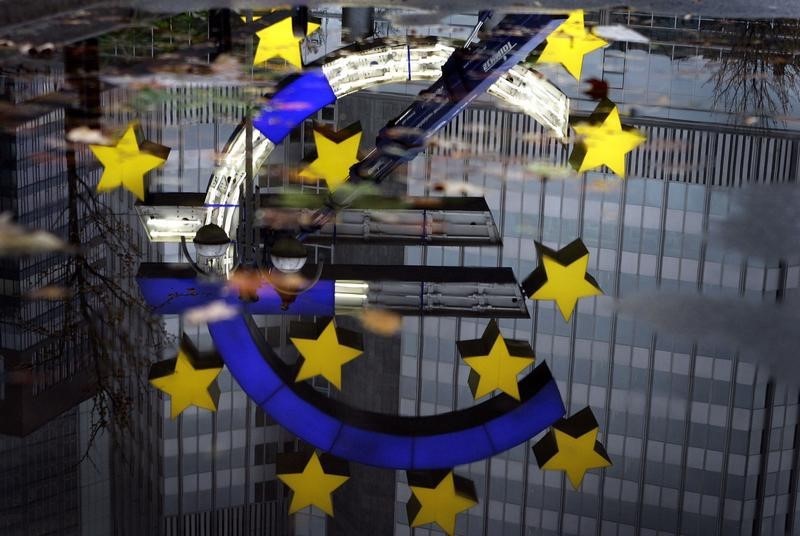By Jan Strupczewski and John O'Donnell
BRUSSELS/ FRANKFURT (Reuters) - With low price inflation serving as a reminder of the euro zone's delicate health, the European Central Bank is having to reassure market investors that it can do yet more to help the economy.
Fresh data showed on Monday that inflation throughout the 19-country bloc was just 0.2 percent - illustrating that while the euro zone's economy is stabilising, it is doing so only at a very low level.
The falling cost of oil is driving prices lower, with energy costs down 7.1 percent in August compared with a year ago.
Policy-setters in Frankfurt, who warn that falling oil has skewed this result, point to a measure the ECB calls core inflation as proof that a one-trillion-euro-plus money printing programme is having an impact.
Stripping out energy and unprocessed food, consumer prices rose 0.9 percent year-on-year in August, the same as in July.
Inflation growth rates are also set to change later this year as the difference between the price of oil now and in 2014, when it started to fall from June, becomes less stark.
Nonetheless, the central bank is far off its goal of inflation near 2 percent and it is expected to pare back its inflation forecasts, an admission that the target may slip.
"The ECB forecasts must show lower inflation. I don't see how it can be any different," said Carsten Brzeski, an economist with ING. "The ECB will prepare markets that it is willing to step up its efforts."
One question, though, is how. When asked in a poll by Reuters last week if the ECB had any viable alternatives to its current asset-buying scheme if serious economic weakness were to reappear, the answer was a resounding "No" from 34 of 46 analysts.
Those who thought there was an alternative listed politically difficult things such as buying equities, and vague things such as more "forward guidance".
NOT YET
For now, the stablisation in inflation in August, which follows a dramatic earlier slump over more than two years, puts the ECB under no immediate pressure to act when its governing council meets this week.
But its president, Mario Draghi, may underscore the bank's readiness to act, a message already sent by the ECB's chief economist Peter Praet, when he said there was "no ambiguity on the willingness and ability ... to act if needed".
With interest rates at record lows, most economists believe this would mean an expansion of its money printing programme to buy chiefly government bonds.
The recent stock-market crash in China further clouds the picture and may hurt commodity prices, thus adding to deflationary pressure.
"The ECB needs to wait for dust to settle in order to better read the impact of recent financial market volatility," said Dominique Barbet, economist at BNP Paribas (PARIS:BNPP).
